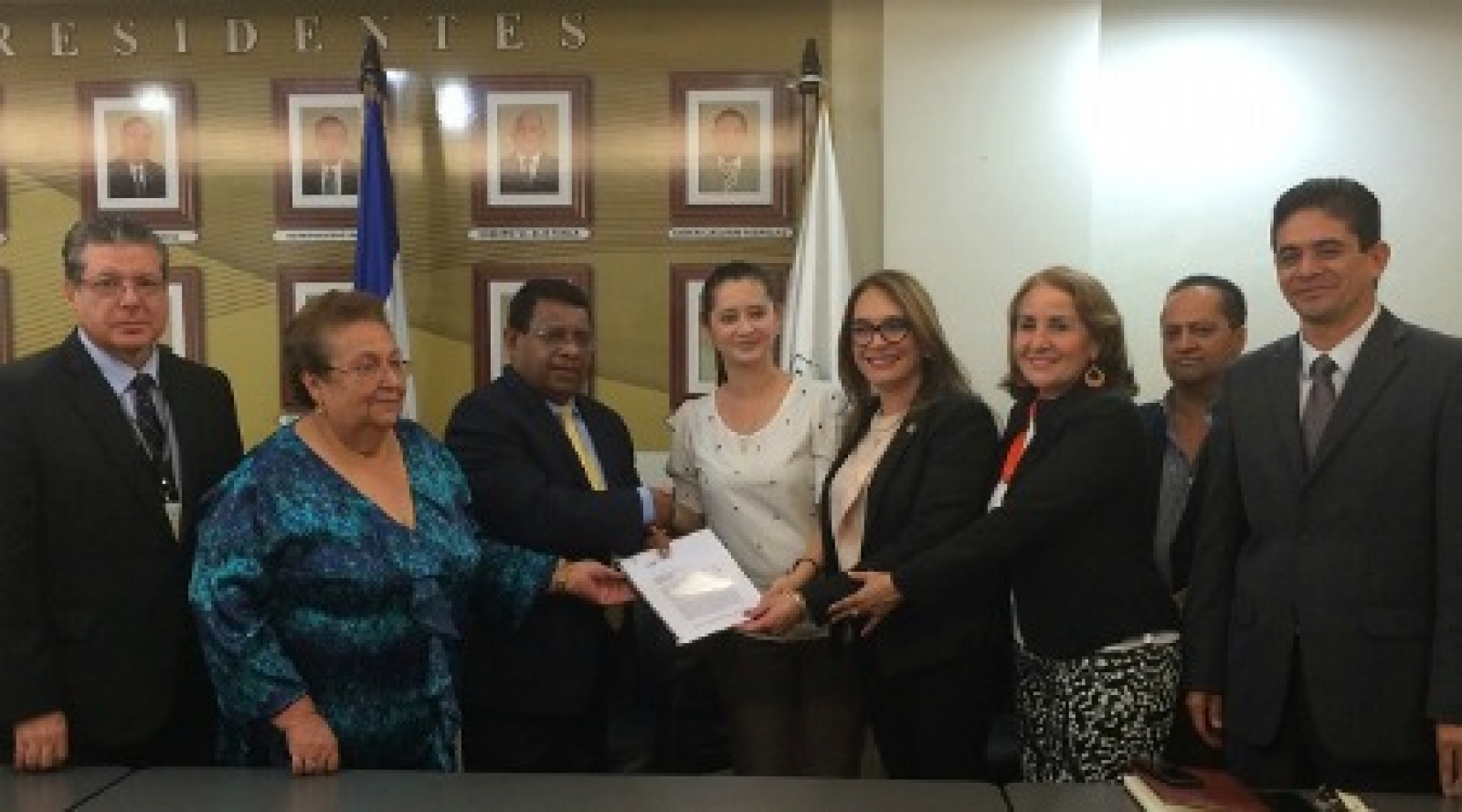
SHARE
“We cannot talk about democracy in Honduras without addressing the fulfillment of women's’ rights,” declared Yadira Bendaña, the president of the Honduran National Congress’ Gender Equality Commission, as she addressed women from several political parties and human rights groups who had gathered to review how gender equality and empowerment have advanced in Honduras.
Held in Tegucigalpa on November 24 and supported by NDI, the Netherlands Institute for Multiparty Democracy, the United Nations Development Programme and United Nations Women, in coordination with the Gender Equality Commission of the Honduran National Congress, the gathering brought together active women legislators, leaders of the women’s secretariats from various political parties, party activists from across the ideological spectrum and representatives of rural, feminist and human rights organizations.
The event highlighted several key advances from 2015, chief among which was the development of an inter-party women’s agenda to advance gender equality and women’s empowerment. In April 2015, the Gender Equality Commission created four inter-party working groups to develop initiatives focused on the following: 1) ensuring gender sensitive budgeting, 2) empowering women economically, 3) increasing women’s political participation and 4) ending all forms of violence against women. “Step by step, together and consistently, we are making history,” said Jessica Sanchez, an advisor to the Gender Equality Commission.
At the November 24 gathering, women legislators presented results of their initiatives, including that for the first time the 2015 general budget of the Republic of Honduras is gender responsive and there now exists a femicide investigative unit within the Public Ministry’s Technical Criminal Investigation Agency. Other new legislative initiatives include a comprehensive law to combat all forms of violence against women, a solidarity credit program for rural women, banning child marriage, advocating for responsible parenthood and promoting sex education in the schools. This wide variety of issues affects Honduran women on a daily basis.
In October, the women submitted a proposal to the Supreme Electoral Tribunal (TSE) to regulate the principle of parity and mechanisms for alternating the political participation of women and men in the electoral process. Such regulation would represent a decisive step in the struggle for the equal political participation of all Honduran women.
A representative of the Platform of Women Against Femicide praised the women legislators for highlighting the need both to combat impunity for femicides and to promote women’s political participation. She noted that these issues are now being discussed in public, which, indeed, represents an advancement. The Platform delivered to the Gender Equality Commission a set of draft reforms to the penal code, which is currently being debated in Congress.
At the close of the event, the participants committed to a series of actions to promote greater political participation of women in 2016-2017, including the implementation of an educational campaign to promote voting for women, given the patriarchal culture prevalent in Honduran society. The women also committed to promoting parity at all decision making levels within their respective political parties by developing or revising gender policies and plans to identify women leaders. They will monitor to ensure that the 10 percent public debt policy within political parties is earmarked for training and promotion of women candidates. Finally, they will advocate for the reopening of the Gender Equity Office in the TSE.
With support from the National Endowment for Democracy, NDI is working with political parties in Honduras to advance gender equality policies and women’s political leadership ahead of the 2017 elections.
Published on December 18, 2015.


